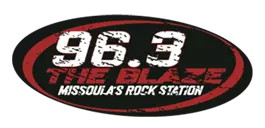
30 Years Ago: Beastie Boys Change Course to Rock ‘Check Your Head’
You don't get to the Rock and Roll Hall of Fame without taking a few chances along the way, and on April 21, 1992, the Beastie Boys turned a corner in their career with the release of their album Check Your Head.
The trio had long shown their rock influences through samples on their Licensed to Ill and Paul's Boutique albums, but with Check Your Head, they began to shift more toward playing their own instruments and reclaiming the punk and hardcore roots of their pre-fame days before rap put them on the map. Part of the reason for this was the increasing restraints on sampling that were happening at the time.
Beastie Boys, "Jimmy James"
In a 1992 interview with Uncut, Mike D. stated, "It's kind of a drag cause there's no real established guidelines … You just kind of have to do it and then try to make a deal for it." In doing so, they ran into a few issues. The Jimi Hendrix estate initially denied a wealth of samples used in the song "Jimmy James," but later granted the group permission. They were not as lucky when it came to a sample of James Newton who took the group to court over the use of a portion of his track "Choir" in "Pass the Mic." The band had paid Newton's label, but the artist was not happy with the situation. Eventually, the Beasties were found not liable for the sample.
Beastie Boys, "Pass the Mic"
But even with the sampling issues, the Beasties were already planning on breaking new ground. They started by building their own G-Son Studio with the help of producer Mario Caldato Jr. and keyboardist Money Mark. After the studio was built, it allowed the band the time and access needed to work out musical ideas without having to worry about studio budgets.
"There was talk of making it an instrumental record for a while," explained Mike D. on the 2009 Check Your Head reissue commentary. "For the first year and a half where we just came into the studio and played our instruments every day, we didn't even mess with the vocals for a long time." As a result, the band ended up with funk-based instrumentals like "Lighten Up" and "Groove Holmes," while other tracks were more jam-based like "POW" and "Namaste."
But this approach shouldn't surprise anyone knowing the Beasties' history. "Pretty much from our first indie record, we just do what we do in the moment," Mike D. told Hangin' With MTV. "We're just fortunate that other people are able to deal with it."
"Pass the Mic" was the first song to drop, arriving in April 1992. It featured some big beats, scratching and a distortion-fueled finale. But that was nothing compared to the song that would follow -- "So What'cha Want" -- the closest thing to a radio hit off the disc. The heavy rocking track with the undeniable beat hit the Modern Rock, Rap and Billboard Hot 100 charts in the summer of 1992. In addition, the track became a bigger hit at MTV, where the Nathaniel Hornblower-directed clip using the photo negative and infrared styles caught the eyes of viewers.
Beastie Boys, "So What'cha Want"
The third single, "Jimmy James," is the one where the band had to wait it out to see if the Jimi Hendrix estate would allow them to use the various Hendrix samples. You'll hear a wealth of Hendrix clips from "Foxy Lady" to "Voodoo Child (Slight Return)" to "Are You Experienced?" used in the song. And there's a nod to another great rock moment, with the band pulling Robin Zander's intro to Cheap Trick's "Surrender."
The fourth single "Gratitude" found the band in full instrumental fuzzed out form, with MCA using a Univox Superfuzz on his bass to get that distorted sound. "I had the Super Fuzz plugged in and began to play the 'Gratitude' bass line. I showed Mike the arrangement and we recorded the basic structure of the song," said Yauch of the song's origins. But even with that killer bass line, it sat for almost a year until the band took a writing excursion and rediscovered the track. "During that trip [Adam] Horovitz played the instrumental version of 'Gratitude' several times," recalled Yauch. "He had an idea, that he wanted to try singing on it, a flow for the words to fall into, and the song began to take shape."
Beastie Boys, "Gratitude"
In all, Check Your Head became one of the Beasties' most eclectic pieces, pulling influences from punk, jazz, hardcore, funk, rock, rap and whatever else they could find in the kitchen sink. The album peaked at No. 10 on the Billboard 200 Album chart, and while not as commercially successful as some of the discs that would come before or after, Check Your Head is the one that opened new doors for the group and kept them from being pigeonholed.
They rocked David Letterman and Arsenio Hall's late night shows. They grew audiences in rock and rap by touring with the likes of Henry Rollins and Cypress Hill and in the process became an in-demand live act, not just for rap crowds and hip-hop kids, but pretty much across the board. Simply put, Check Your Head changed the Beastie Boys' career trajectory and helped cement them as a legendary act.






